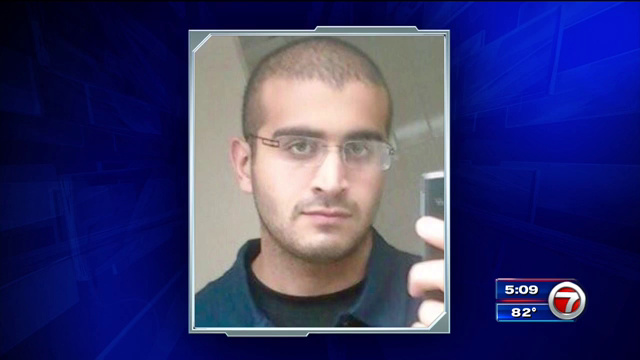WASHINGTON (AP) — The gunman at the Orlando gay nightclub had “strong indications of radicalization” and was likely inspired by foreign terrorist organizations, the FBI director said Monday.
James Comey also said the man, who has been identified as 29-year-old Omar Mateen, spoke with a 911 operator three times during the deadly event. At one point, Comey said, he pledged loyalty on the call to the head of the Islamic State group.
Comey’s remarks offered further detail on the shootings that left 49 victims dead and more than 50 hurt, making it the deadliest mass shooting in modern U.S. history. Mateen died in a gun battle with police.
President Barack Obama said Monday the killer was inspired by extremist information over the internet, calling it an apparent example of the “homegrown extremism” that U.S. officials have been worrying about for years.
Mateen had twice come to the FBI’s attention before Sunday’s shooting, the FBI said. It investigated him for 10 months, beginning in May 2013, because he had made “inflammatory and contradictory” statements about ties to terrorist groups that caught his coworkers’ attention.
Mateen was working at the time as a contract security guard at a local courthouse. He has held a Florida license to be an armed security officer since at least 2011, state records show.
The FBI director said that Mateen at the time claimed family connections to al-Qaida and said he was a member of Hezbollah, which Comey said “is a Shia terrorist organization that is a bitter enemy of the so-called Islamic State.”
Mateen had also told coworkers “he hoped that law enforcement would raid his apartment and assault his wife and child so that he could martyr himself,” Comey said.
The FBI’s Miami field office opened a preliminary investigation to determine whether Mateen was “possibly a terrorist.” The FBI began introducing him to confidential sources, following him, reviewing some details of his communications and running him through government databases looking for ties to terrorism.
Comey said Mateen admitted making the statements reported by his coworkers, but explained that he did it in anger because he thought they were discriminating against him and teasing him because he was Muslim, Comey said.
Agents closed the first investigation in early 2014, but Mateen’s name came up in a separate FBI investigation a few months later, in July 2014.
This time, the FBI was investigating Moner Mohammad Abusalha, a Florida man who blew himself up in a suicide attack in Syria on behalf of the al-Qaida affiliated Nusra Front.
The FBI found Mateen and the man had attended the same mosque and knew each other casually. “But the investigation turned up no ties of any consequence between the two of them,” Comey said.
Comey said that one witness interviewed during the investigation into Abusalha brought up Mateen’s name when asked if the witness knew of anyone “who might be radicalizing.”
The witness said he worried about Mateen because he mentioned videos of Anwar al-Alwaki, an al-Qaida leader killed in 2011 by a U.S. drone strike. But the witness said his concerns had diminished after Mateen got married, had a child and got a job as a security guard.
Comey said that FBI agents interviewed Mateen again during the investigation, but found no “significant contacts with the suicide bomber for Al-Nusra” and moved on.
Copyright 2024 The Associated Press. All rights reserved. This material may not be published, broadcast, rewritten or redistributed.

